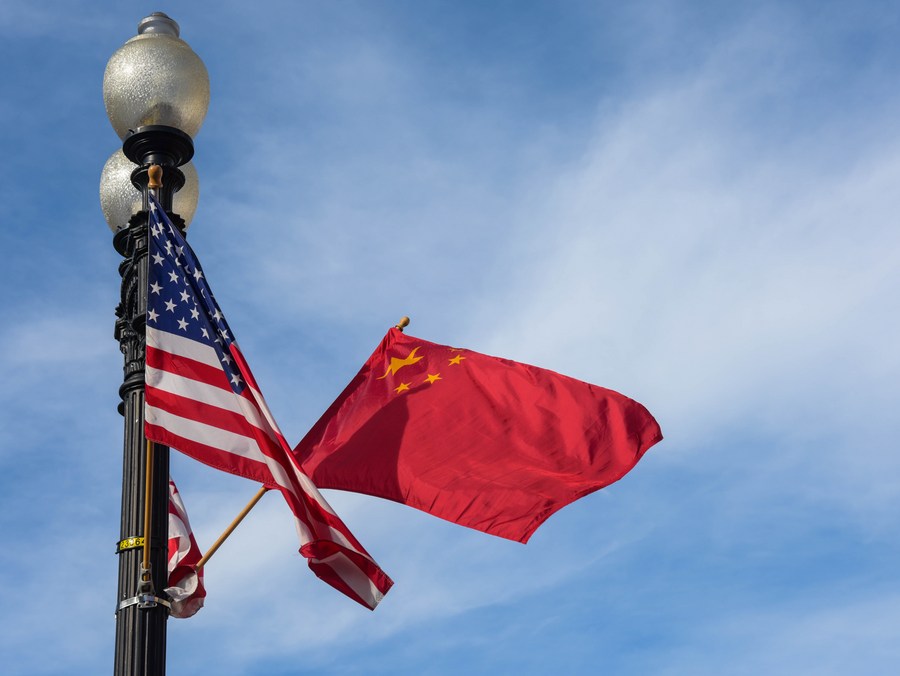Trade links 'enduring' though imports decline
By ZHAO HUANXIN in Washington | chinadaily.com.cn | Updated: 2023-08-09 11:04

The sharp decline in the value of the goods that America imports from China — by 25 percent in the first half of this year — is due to a consumer spending drop, but also a result of "indirect trade" between the two countries, suggesting their economic links are "enduring" even amid tensions, analysts said.
US goods imports from China were valued at $203 billion during the first six months of 2023, a decline from $271 billion in the same period last year, while two-way goods trade fell by nearly 20 percent, according to data released by the US Commerce Department on Tuesday.
"I think the decline is mainly due to a slowdown in US household purchases of the various goods produced in China," said Gary Hufbauer, a senior fellow and trade expert at the Peterson Institute for International Economics in Washington.
The top US imports from China in 2023 include computer and electronic products, electrical equipment, appliances and components,and machinery and chemicals, according to the International Trade Administration.
Hufbauer said the impact of the massive tariffs, imposed on roughly two-thirds of Chinese goods during the Trump presidency, was "pretty well" reflected in US imports from China by 2022. Further declines in 2023 mainly reflect changes in household purchases.
The National Retail Federation, in a July economic review, said that while first-quarter consumer spending was decent, it decelerated in May, signaling that a slowdown can be expected when second-quarter results are released.
Overall, US imports of goods slumped by 1.2 percent to $253.3 billion in June, the lowest level since October 2021, according to official statistics.
"Weakening consumer demand for goods and retreating inventory growth by businesses have softened imports this year, while exports continue to trend downward as the global economic backdrop softens," Matthew Martin, a US economist at Oxford Economics, told Reuters.
Consumer spending aside, Hufbauer said that going forward, "redirected supply chains" will play a larger role in actual US imports from China.
"China is shipping more intermediate goods to countries like Mexico, Malaysia and Vietnam, and then the final products are coming to the US," Hufbauer told China Daily. "I think we will see more of these redirected supply chains in the future."
The drastic drop of Chinese imports has made headlines in the global media, but China watchers were quick to point out that it does not prove that attempts to decouple will work out.
In an article "How America is failing to break up with China" published on Tuesday, The Economist noted that China-US economic ties are "more profound than they appear at first glance".
It said the attempt to "de-risk" trade with China is the cornerstone of the White House's foreign policy, but that instead of being slashed, trade links between America and China are enduring—just in more tangled forms.
Beijing has said "de-risking" is "de-coupling" in disguise, the purpose of which is to curtail China's growth.
"Given that most countries are desperate for the investment and employment that trade brings, America has been unable to convince its allies to reduce China's role in their supply chains," The Economist authors wrote.
"Many are content to play both sides—receiving Chinese investment and intermediate goods, and exporting finished products to America and the rest of the West," they wrote.
Commenting Monday on a Washington Post report titled "US companies are buying less from China as relations remain tense", Scott Kennedy, trustee chair in Chinese Business and Economics at the Center for Strategic and International Studies, noted that the article misses the fact that some of the decline is made up by Chinese companies that have invested in South East Asia.
In a post on social media, the senior adviser wrote that the results are "not US-CH (China) decoupling, but more indirect trade & investment ties".
S.L. Kanthan, a geopolitical analyst based in Bangalore, India, also wrote on Twitter on Tuesday: "Here's why US is importing less from China: US buys Chinese goods through other countries! China's exports to intermediary countries like Mexico, Vietnam, India, and Malaysia skyrocketed after 2018… when US trade war began. So, decoupling is just recoupling."
























